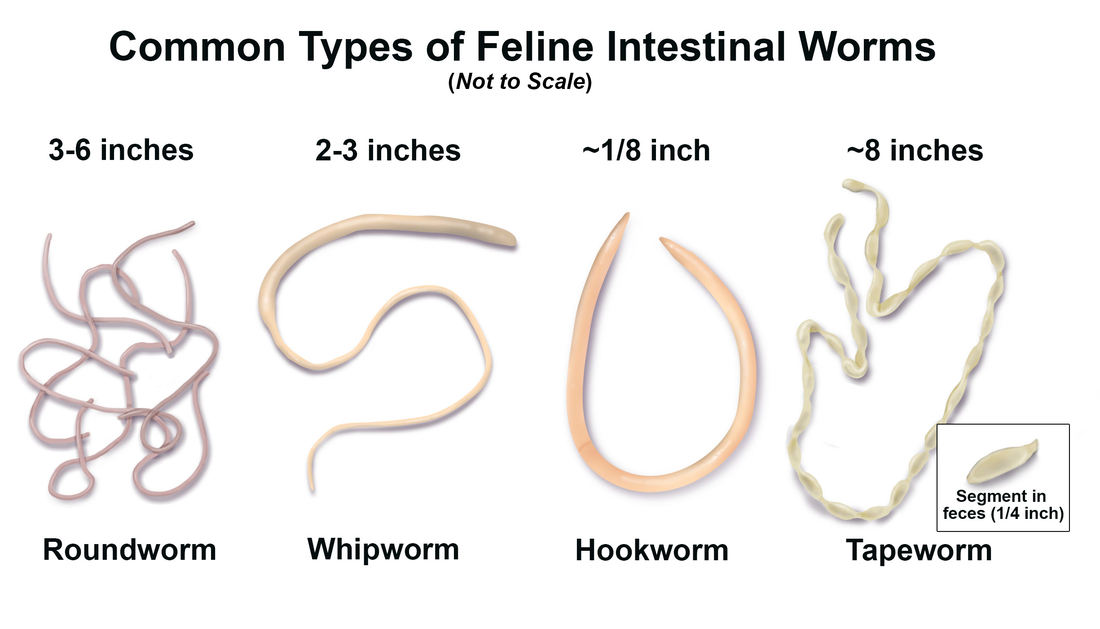|
1. Puppies and kittens need to be dewormed more often than adult animals. We recommend once a month for three consecutive months at the same time as their vaccine series. 2. Just because you can’t see them doesn’t mean they aren’t there. Fecal flotations can be done to check for eggs. 3. Some factors that increase exposure are being outdoors, in contact with other cats or dogs, and travelling. 4. Children, the elderly, pregnant woman, cancer patients, diabetics, and anyone else with a suppressed immune system are at greater risk of contracting worms from their pets. 5. Some species can survive in temperatures below -30°C. Intestinal roundworms produce 10,000 eggs every day. These eggs have a thick crust which protects them from the elements. 6. The more common intestinal parasites in Alberta are ascarids (roundworms), tapeworms, and giardia, intestinal protozoa which causes “beaver fever” in humans. 25-75% of cats have roundworms and higher percentage in kittens. Roundworms and tapeworms are infectious to humans as well. When dogs and cats are heavily infested with internal parasites they may vomit them up or can expel them through feces. Diarrhea may be seen as well. Owners usually remember to deworm their dogs, but cats can sometimes get overlooked. If they are indoor cats they still need to be dewormed.
There are easy steps to take to lower the risk of infection of your pets, your family and yourself:
0 Comments
Leave a Reply. |
Ashlyn, RVTJoin me in learning a few tips about being the best owner that you possibly can be. Archives
September 2022
Categories |
Phone | 780-554-0663 | Fax | 780-348-5540 [email protected]
Enter "Stone Ridge Vet" into Google or Apple Maps
59525 Range Road 235, Westlock County
Enter "Stone Ridge Vet" into Google or Apple Maps
59525 Range Road 235, Westlock County



 RSS Feed
RSS Feed